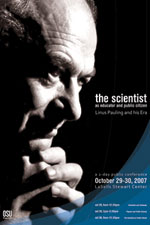Videos: Session 1: Scientists and Textbooks
Session Chair, "Scientists and Textbooks”
Mary Jo Nye (History of Science, Oregon State University)
11:32 - Transcript Available
“Periodicity, Priority, Pedagogy: Mendeleev and Lothar Meyer”
Michael Gordin (History, Princeton University)
30:44 - Transcript Available
The priority dispute over the periodic system of chemical elements between D. I. Mendeleev (1834-1907) and Lothar Meyer (1830-1895) was one of the most vehement and high-profile of a series of nineteenth-century confrontations that quickly reduced to chauvinistic nationalist claims by proponents of both sides. Less often recognized is that both periodic systems had their origins in general chemistry textbooks written by each chemist -- The Principles of Chemistry and Modern Theories of Chemistry, respectively -- and that many of the subtle differences between the two systems, and thus pivotal points in the priority dispute, can be traced specifically to this textbook origin. This paper will explore the grounding of both systems in specific pedagogical systems, and discuss how questions of credit played out in the multiple genres of this priority dispute."
“Textbooks as Manifestos: C. A. Coulson after Linus Pauling and R. S. Mulliken”
Ana Simões (Physics, University of Lisbon)
38:11 - Transcript Available
In this talk, rather than looking at Pauling’s The Nature of the Chemical Bond (1939) and Coulson’s Valence (1952) as manifestos in which the status of quantum chemistry was discussed, I look at both textbooks as manifestos for particular and distinctive epistemological views on science. In order to do that, I invite you to look at Coulson’s Valence not as the textbook which ended the hegemonic reign of Pauling’s The Nature of the Chemical Bond, but as the outcome of an on-going conversation, either literal or metaphorical, between Pauling and Coulson, in which each scientist qua author was responding to the other, agreeing or disagreeing with him, in the process revising his ideas, and writing his textbooks as a result of an enduring dialogue which did not stop with Valence nor even with the last edition of The Nature of the Chemical Bond. Seen from this new perspective, Valence was the textbook "neither Mulliken nor Pauling managed to write", and this realization is at the core of contrasting Pauling and Coulson’s epistemological views on science.
“Making a Modern Physics Textbook: The Collision of Full-Time Commitments”
Ken Krane (Physics, Oregon State University)
44:06 - Transcript Available
Without intending to do so, in 1978 I began a second career as a textbook author, which has now seen the production of a total of 5 editions of 3 undergraduate or graduate physics textbooks. This process has taken place more-or-less continuously over the past 29 years, during which time I have maintained an active program of research in nuclear physics as well as spending half my career as department chair. I will discuss the difficulties of balancing these (and other) time commitments, the appeal that draws me into textbook writing, and the unexpected benefits of joining the national physics education community. I will also offer some comments about physics textbooks from the varying perspectives of student, instructor, author, and publisher.
Watch Other Videos
Session 1: Scientists and Textbooks
- Mary Jo Nye - Session Chair, "Scientists and Textbooks”
- Michael Gordin - “Periodicity, Priority, Pedagogy: Mendeleev and Lothar Meyer”
- Ana Simões - “Textbooks as Manifestos: C. A. Coulson after Linus Pauling and R. S. Mulliken”
- Ken Krane - “Making a Modern Physics Textbook: The Collision of Full-Time Commitments”
Session 2: Popular and Public Science
- Cliff Mead - Session Chair, "Popular and Public Science”
- Bassam Shakhashiri - “On Bonding with the Public”
- Robert Anderson - “Circa 1951: Presenting Science to the British Public”
- Stephen Lyons - “Bringing Chemistry to Prime Time”
- Dudley Herschbach - “Linus Pauling as an Evangelical Chemist”
Session 3: The Scientist as Public Citizen
- Chris Petersen - Session Chair, "The Scientist as Public Citizen”
- Tom Hager - “The Scientist as Celebrity: Pauling, The Media, and the Bomb”
- Lawrence Badash - “Science in the McCarthy Period: Training Ground for Scientists as Public Citizens”
- Warren Washington - “The Evolution of Global Warming Science: From Ideas to Scientific Facts”
- Jane Lubchenco - “Advocates for Science: The Role of Academic Environmental Scientists”
- Chris Petersen, Tom Hager, Lawrence Badash, Warren Washington, Jane Lubchenco - “Panel Discussion of Session III Topics”


